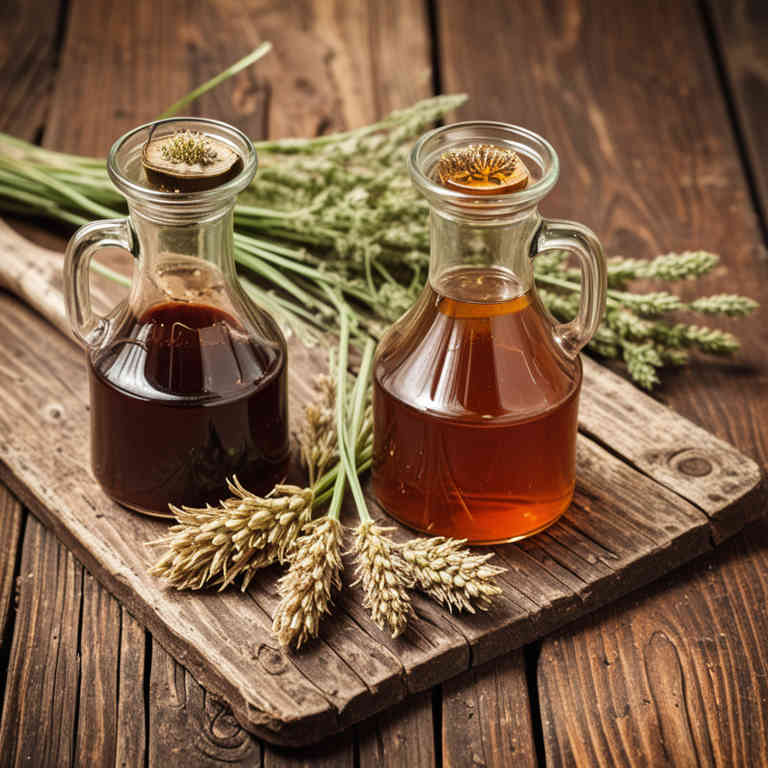Plantago lanceolata syrup for medicinal use

Plantago lanceolata syrup is a traditional herbal preparation made from the leaves of the greater plantain plant, which is known for its soothing and healing properties.
This syrup is typically prepared by simmering the fresh or dried leaves in water and then reducing the liquid to create a concentrated syrup. In herbalism, it is used to alleviate respiratory conditions such as coughs, sore throats, and bronchitis due to its expectorant and anti-inflammatory effects. It is also sometimes used to support digestive health and soothe irritated mucous membranes.
The syrup is valued for its mild, slightly sweet taste and its gentle yet effective action on the body.
Uses
Plantago lanceolata syrup has been used to treat respiratory and digestive ailments for centuries.
Historically, it was valued in traditional medicine systems such as Ayurveda and Chinese medicine for its soothing and anti-inflammatory properties. In modern times, it is often used as a natural remedy for coughs, sore throats, and gastrointestinal discomfort. The syrup is made by combining the mucilage-rich leaves of the plant with honey or sugar, enhancing its therapeutic effects.
Today, it remains a popular herbal preparation in alternative and complementary medicine practices.
Benefits
Plantago lanceolata syrup has health benefits such as soothing respiratory issues, reducing inflammation, and supporting digestive health.
It is traditionally used to alleviate symptoms of coughs, sore throats, and bronchitis due to its expectorant and anti-inflammatory properties. The syrup may also help in relieving gastrointestinal discomfort by promoting healthy digestion and reducing bloating. Additionally, it is believed to have mild diuretic effects, aiding in the removal of excess fluids from the body.
This herbal preparation is often valued for its natural ability to support overall wellness and immune function.
Constituents
Plantago lanceolata syrup active constituents include mucilage, flavonoids, tannins, and various polysaccharides.
These components contribute to its soothing and anti-inflammatory properties. Mucilage helps in coating and protecting mucous membranes, making it useful for respiratory and digestive tract ailments. Flavonoids and tannins provide antioxidant and astringent effects, supporting overall health.
Polysaccharides may enhance immune function and promote wound healing.
Preparation
To make Plantago lanceolata syrup, first gather fresh or dried Plantago lanceolata leaves and wash them thoroughly.
Next, add the leaves to a pot with water and bring to a boil, then reduce heat and let simmer for about 20 minutes. Strain the liquid through a fine mesh sieve or cheesecloth to remove the plant material. Combine the strained liquid with sugar in a ratio of 1 part sugar to 2 parts liquid, and simmer gently until the mixture thickens slightly.
Finally, store the syrup in a clean, airtight container in the refrigerator for up to two weeks.
Side Effects
Plantago lanceolata syrup may lead to gastrointestinal discomfort, including nausea, vomiting, and diarrhea, especially with high doses.
It can also cause allergic reactions in individuals sensitive to plants in the Plantaginaceae family. Long-term use may result in liver or kidney damage due to its high concentration of mucilage and other compounds. It is important to consult a healthcare professional before use, particularly for pregnant women, children, or those with chronic illnesses.
Always follow the recommended dosage to minimize the risk of adverse effects.